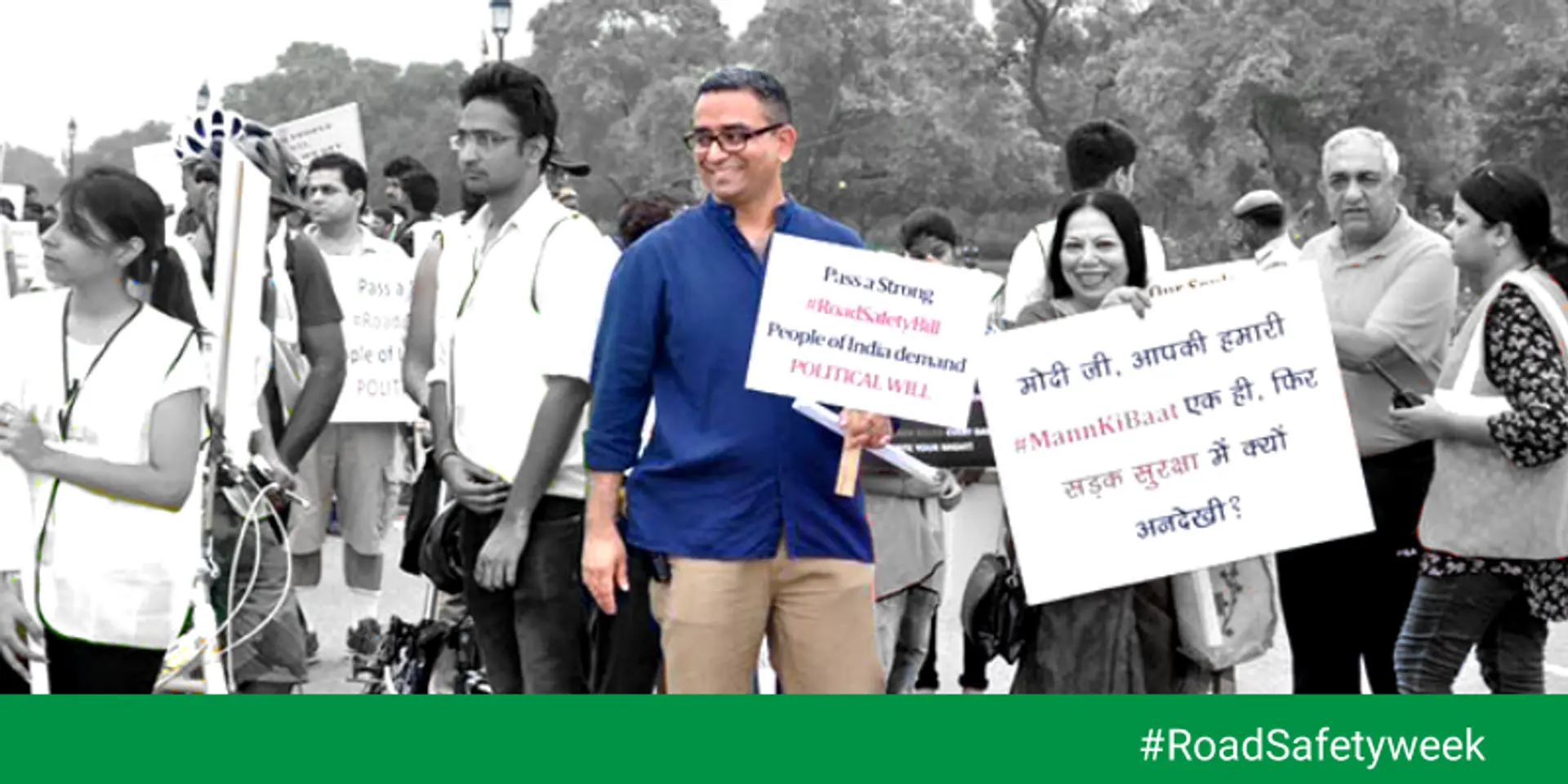Thanks to this NGO, you can help road accident victims without facing legal hassles
Started by Piyush Tewari in 2008, the Save Life Foundation is an independent, non-profit, and public charitable trust that is working to improve road safety and emergency medical care across India.
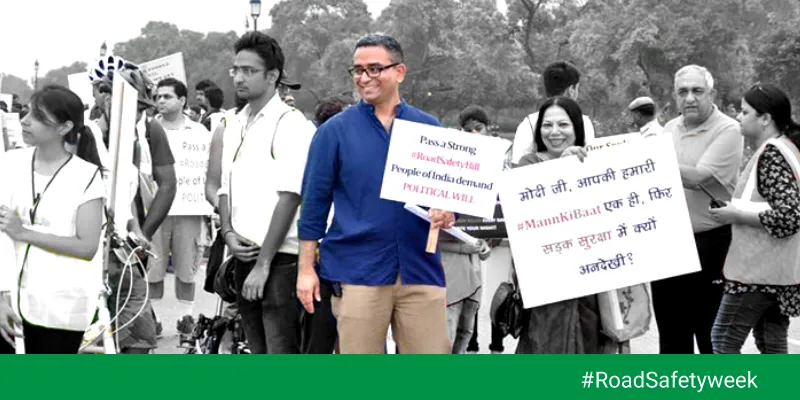
While driving his car to attend a wedding in Bengaluru, Sameer Krishna spotted a road accident on his way. As he inched closer, he saw a young man injured and lying in a pool of blood, and near him were a damaged bike and a car. While there were many people hovering around the accident scene, none of them stepped forward to help the victim. Wasting no time, Sameer picked him up and drove to the nearest hospital.
“The only thought in my mind was, what if that was my son,” the 34-year-old says.
When he reached the hospital, the doctors asked him many questions - from details of the injured person to the accident scene itself, and they insisted that a police complaint be filed. But Sameer insisted the victim required immediate medical help, and the doctor finally started to examine the patient.
“It is not that people don’t want to help, but they don’t want to be a part of the mess - the police, the enquiry, being a witness and arguing with the doctors. The system does not allow us to help them because we fear the consequences,” Sameer says.
Realising the need to have a law, which advocates and empowers bystanders to voluntarily come forward and provide assistance to the injured person in case of an accident, Piyush Tewari, Founder, Save Life Foundation, filed a Public Interest Litigation (PIL) in the Supreme Court in 2012.
Through the PIL, he requested the court to protect the ‘Good Samaritans’ who came forward to help the injured from ensuing legal and procedural hassles. Four years later, on March 30, 2016, the ‘Good Samaritan Law’ was enforced in the Indian Constitution via Article 141. Piyush says,
“If citizens think they are safe and feel protected, they will come forward to help the injured.”
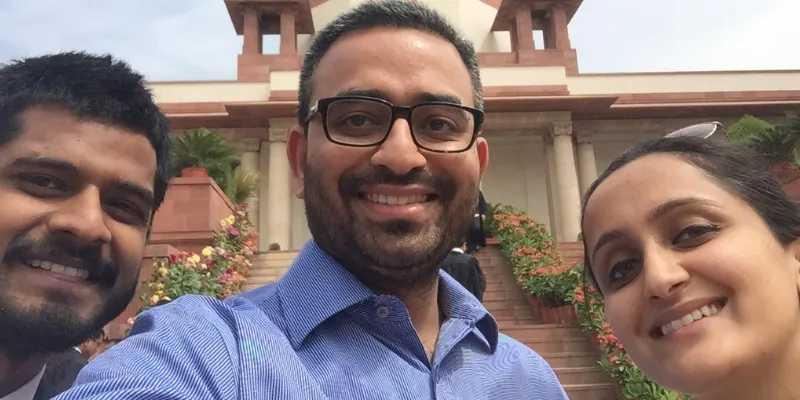
Piyush’s NGO, the Save Life Foundation, was started in 2008 to improve road safety and emergency medical care across India. It is an independent non-profit and public charitable trust that has assisted accident victims with an existing community such as the police, volunteers, and the government.
“As per the 201st report of the Law Commission of India, 50 percent of road accident victims can be saved with timely medical care. As emergency care service in India remains limited, the role of a bystander can be crucial to saving the life of the injured,” he says.
The long-winded legal road
Piyush says he was motivated to start the Save Life Foundation after he lost his 16-year-old cousin in a road accident in 2007. He says his cousin’s life could have been saved if someone had volunteered to help him in the accident site immediately.
Hence, to solve this problem and insulate people from legal and procedural hassles, Piyush developed a model of emergency response by leveraging local police officers, and trained the first batch in basic trauma and medical care in early 2009. The plan was to ensure that road accident victims get immediate help.
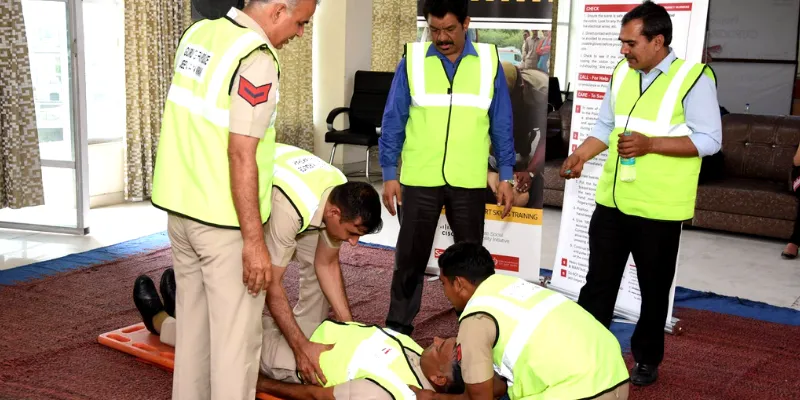
SaveLife also entered a partnership with the All-India Institute of Medical Sciences (AIIMS), Apollo, and Max Hospital to develop a programme that uses “common sense” to help save accident victims using techniques like bleeding control, stabilising the spine and cardiopulmonary resuscitation (CPR).
After getting a positive response from the citizens, the police, and partner organisations, Piyush decided to quit his job as the managing director at US-based private equity firm Calibrated Group in 2011. He says he started advocating the ‘Good Samaritan Law’.

Also read: Safety first – how these startups are ensuring you reach home safe
Piyush says after he studied and built a strong case with his team and filed a PIL in the Supreme Court, the government set up a panel under Justice VS Agarwal to develop specific guidelines for Good Samaritans.
He strongly believes that policy advocacy was the first step to propel behavioural change, and that an effective change could be created through enabling policies and legislation. He explains,
“Road safety in India is governed by the Motor Vehicles Act 1988, which is a 30-year-old archaic legislation that doesn’t capture the current realities of rapid urbanisation. As a result, it has failed to prevent deaths on roads. Hence, policy advocacy becomes critical to ensure a stronger law and to bring the issue from periphery to the mainstream.”

The challenges still exist
Studies suggest that after the Good Samaritan Law was passed, the willingness of bystanders to help road crash victims increased to 88 percent in 2018, as against 26 percent in 2013.
However, there are still many challenges. While talks about the protection of Good Samaritans has become an active part of policy discourse since the judgment as well as the enactment of the Karnataka Good Samaritan and Medical Professional (Protection and Regulation during Emergency Situations) 2018, Piyush says a lot still needs to be done.
“Low awareness and weak implementation is a major challenge. As health is a state subject, state legislation on the issue can ensure better implementation of the law, and SaveLIFE is working with different state governments for a state-specific legislation,” Piyush adds.
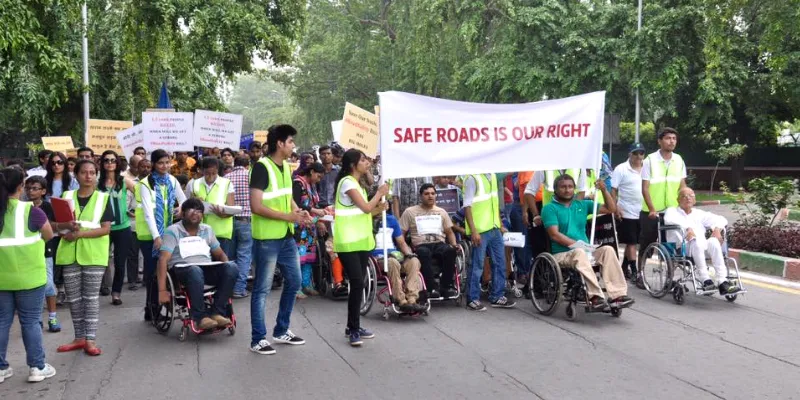
Also read: Road to recovery: What needs to be done to cut down on road accidents and ensure a safer India?
A 2018 study to understand the impact of Good Samaritan Law reveals that 84 percent of the respondents are still unaware of the law. Implementation of the law was also found to be weak as the stakeholders - police, hospitals, and judiciary - admitted that most responsibilities prescribed were not being adhered to.
For instance, while the law protects the Good Samaritan from being forced to reveal personal details, 57 percent of medical staff and 64 percent of police personnel surveyed revealed that they ask Good Samaritans for personal details.
In the last decade, over 13 lakh people have succumbed to road crashes, and over 50 lakh have been seriously injured. The reasons are attributed to bad road-user behaviour, flawed road design and engineering, weak enforcement of traffic laws, and lack of rapid trauma care.
“Road safety is a multi-pronged issue, and the problem gets exacerbated when all these factors overlap and lead to a systemic failure to provide safe mobility. Lack of a strong lead agency to coordinate the functioning of these agencies and stakeholders, and taking decisions on the matter is the single biggest challenge,” Piyush says.

The road ahead
Currently, India is considered as the global road crash capital, clocking 17 deaths and 53 crashes every hour. What we need is entrepreneurial innovation and scale. Companies need to look at this sector with a solution-oriented approach and come up with innovative solutions for different aspects like increasing the production of locally-made child safety mechanisms, and building systems like trauma registries and advance intimation system.
Also read: How the government and citizen groups are tackling badly designed roads in India
This article was a part of the Road Safety Week series, where SocialStory discussed the multiple interventions required to make the Indian roads safer for the citizens.


